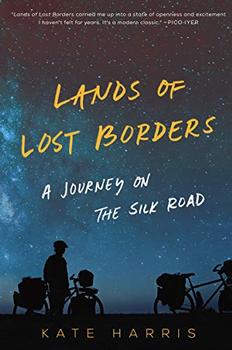Summary | Excerpt | Reviews | Beyond the book | Read-Alikes | Genres & Themes | Author Bio

And Other Excursions to Iceland's Most Unusual Museums
by Kendra Greene"Museums...are collections sorted and arranged into stories, given order and explanation and sense," A. Kendra Greene writes in The Museum of Whales You Will Never See. Iceland, with a population of just over 330,000, boasts more than 265 museums and public collections. Greene's roving, ranging book of essays takes the reader on a tour of a handful of them. But this is no mere travelogue. Greene's work is itself a collection of varied, disparate pieces—long-form journalism, personal essay, history, academic treatise—arranged into winsome stories that seek to give "order and explanation and sense" to the author's journey to understand one question: How does a collection become more than the objects within it?
For Greene, a writer and artist who has worked at the Museum of Contemporary Photography, the Chicago History Museum, the University of Iowa Museum of Natural History and the Dallas Museum of Art, the answer to this question lies not in the materiality of the objects but in the stories those objects tell:
It's always been the story that mattered most, the connections inferred, the object not as a thing of inherent properties but as a touchstone to who we are and where we come from.
Using a stream-of-consciousness style, Greene moves from objects to ruminations on religious history, geography, forms of loss, national identity and modernity—and that's just in one museum. It can be hard, sometimes, to keep up with the speed of her mind as she traverses various twists and turns: the history of the Herring Era interspersed with musings on rules for schooling fish; a visit to the world's only penis museum interrupted by a history of whaling; remembrances from a school trip to Greece; thoughts on the purpose and character of museums. But her infectious curiosity and rhythmic writing carry you along. It's like traveling with your most erudite friend.
Greene is particularly interested in the people behind the collections: the former school headmaster who runs the aforementioned penis museum; the 14-year-old, gifted a small brass object, who went on to amass 15,000 objects; the fish factory worker who carried stones out of the mountains; the community that pulled together to build a museum for sea monsters; the chief sorcerer who oversees the Museum of Icelandic Sorcery and Witchcraft. The lives of these people—their histories and desires—are integral to understanding both the character of Iceland and the nature of its museums. Through their stories, the museums become living things; the objects—even the buildings themselves—become enmeshed within webs of significance:
We do not just keep and collect things, amass and restore them. We trouble ourselves to repurpose, create, and invent things just to carry, a little easier, those stories we cannot live without.
Like the museums she visits, Greene transforms her collection of facts, anecdotes and ideas into something more. She intelligently invents something new, something fresh, something easier to carry yet full of meaning and insight. Reading her stories may require some effort, but the reader is rewarded with a trip to remember.
![]() This review
first ran in the June 3, 2020
issue of BookBrowse Recommends.
This review
first ran in the June 3, 2020
issue of BookBrowse Recommends.

If you liked The Museum of Whales You Will Never See, try these:

by Kate Harris
Published 2019
A brilliant, fierce writer makes her debut with this enthralling travelogue and memoir of her journey by bicycle along the Silk Road—an illuminating and thought-provoking fusion of The Places in Between, Lab Girl, and Wild that dares us to challenge the limits we place on ourselves and the natural world.

by Michael Meyer
Published 2016
A combination of memoir, contemporary reporting, and historical research, presenting a unique profile of China's legendary northeast territory.
Your guide toexceptional books
BookBrowse seeks out and recommends the best in contemporary fiction and nonfiction—books that not only engage and entertain but also deepen our understanding of ourselves and the world around us.